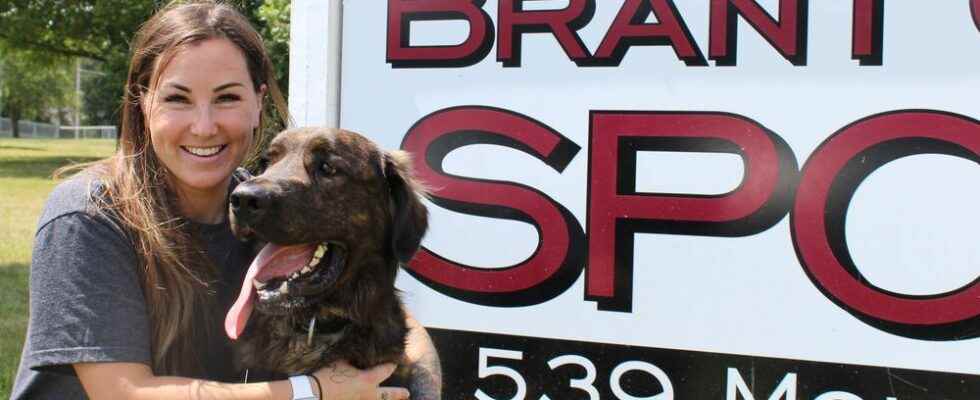For the first time in more than 50 years, animal control in Brantford isn’t being undertaken by the Brant County SPCA.
On July 1, Hillside Kennels Animal Control, based in Innerkip, began a contract with the city for services including pick up of stray dogs and injured cats on public property and injured or deceased wildlife.
Both the SPCA and Hillside Kennels do animal adoptions.
Robin Kuchma, executive director with the Brant County SPCA, said a pandemic-related staffing shortage in March meant they couldn’t meet all the requirements of their long-time contract with the city. She said the city then reached out to Hillside to provide animal control services on a temporary basis.
Kuchma said the SPCA made efforts to hire new staff, offering an increased wage in order to attract candidates. By June, she said they had a crew in place and were training them but they were unable to complete that training in time to meet the city’s requirements.
Kuchma said three members of their animal service team were let go.
“It’s disappointing,” she said. “It’s a service we took pride in.”
Maria Visocchi, the city’s manager of communications, said “transitioning Brantford’s animal control service provider involved review of contractual agreements, and, consistent with the in-camera subject matter provision in the Municipal Act,” it was not discussed in an open meeting.
Tracey Gibson, co-owner of Hillside Kennels along with Maddy Riddell, said they provide animal control for numerous towns, cities and municipalities, including the County of Brant, Norfolk County, Woodstock, Ingersoll, Norwich, South-West Oxford, East-Zorra Tavistock, Thames Centre, and Blandford Blenheim.
Gibson said they are getting between 80 and 100 calls a month about stray, sick and injured animals in Brantford, about twice as many calls as all the other locations they serve combined.
Gibson said efforts are made to find owners of dogs gone astray. They also provide adoption and work with other rescue services to find animal homes. Efforts are made to treat injured animals but some need to be euthanized.
Many shelters are being overrun by so-called pandemic pets, as people who bought at the height of COVID-19 return to work or struggle with the rising cost of caring for the animals.
Toronto Animal Services says there has been a 63 per cent increase in the number of pets surrendered to the organization this year compared to the same period in 2021.
Amber Best, manager of animal care at the Brant County SPCA, said they get a couple calls a day “asking if we can take in a dog.”
“People went out and paid thousands of dollars for puppies that were so cute when they were young,” said Gibson. “But they got no socialization with people or animals. So when people went back to work, the dog started destroying the house. The rescues are full, the pounds are full and there’s no way to move these dogs. It’s people who have caused these issues.”
But Kuchma said without the responsibility of animal control, the SPCA has been able to focus more on its re-homing program, not just for surrendered pets but for people who find themselves in crisis. They can provide a temporary shelter for those fleeing domestic violence, for example, or someone who is in hospital and has no one to care for their pet.
“We’ve always done that,” said Kuchma. “Now we can do it a little bit more.”
